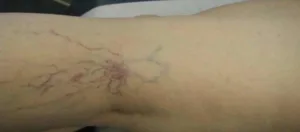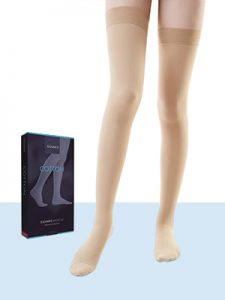Varicose Veins in Young Women: Why Are Cases Increasing in Their 20s?
Varicose veins are becoming more common among women in their 20s. While traditionally associated with older adults, recent trends indicate a steady rise in cases among young women. According to data from the Korea National Health Insurance, the number of varicose vein patients increased from 120,000 in 2007 to 140,000 in 2012, marking an annual growth of approximately 35%. Interestingly, women are twice as likely to develop varicose veins compared to men, with a noticeable 5% annual increase among women in their 20s over the past five years.

What Are Varicose Veins?
Varicose veins occur when the veins become enlarged, swollen, and twisted due to improper blood flow. Normally, veins contain valves that ensure blood moves efficiently back to the heart. However, when these valves weaken or fail, blood can pool, causing the veins to enlarge and bulge outward.
Symptoms of Varicose Veins
- Visible, enlarged veins that appear twisted or bulging on the skin’s surface.
- Swelling, heaviness, or aching pain in the legs, especially after prolonged standing or walking.
- Skin discoloration or ulcers in severe cases.
- Muscle cramps or a sensation of tightness in the legs, particularly at night.
Why Are Young Women at Higher Risk?
Several lifestyle and occupational factors contribute to the increasing prevalence of varicose veins in young women:
- Prolonged Standing Jobs: Professions such as flight attendants, teachers, sales associates, and service industry workers require long hours of standing, increasing pressure in the leg veins.
- Tight Clothing and Footwear: Wearing skinny jeans, leggings, tight boots, or high heels can restrict circulation, leading to venous congestion.
- Lack of Exercise: A sedentary lifestyle can weaken circulation, increasing the risk of blood pooling in the veins.
- Hormonal Changes: Pregnancy, birth control pills, and hormonal fluctuations can weaken vein walls and valves, making varicose veins more likely.
- Genetics: If varicose veins run in the family, the likelihood of developing them is significantly higher.
How to Prevent Varicose Veins
Preventing varicose veins starts with reducing excessive pressure on the legs and maintaining healthy circulation. Here are some practical steps:
✔ Wear Comfortable Clothing: Avoid overly tight pants and choose breathable fabrics that do not constrict circulation. ✔ Opt for Supportive Footwear: High heels should be worn in moderation; instead, opt for shoes with good arch support and cushioned soles. ✔ Elevate Your Legs: After a long day, prop your legs up above heart level to reduce swelling and improve circulation. ✔ Massage & Stretch: Gently massaging the legs and engaging in light stretching can relieve muscle tension and improve blood flow. ✔ Stay Active: Regular walking, cycling, or swimming helps promote healthy circulation and prevent blood from pooling in the veins. ✔ Hydrate & Eat Well: A diet rich in fiber and hydration helps prevent constipation, which can contribute to increased venous pressure.

By adopting these preventive measures, young women can reduce their risk of developing varicose veins and maintain overall leg health. If symptoms persist or worsen, consulting a medical professional for early intervention is recommended.
Expert Insight: Dr. Francis Jeon on Venous Circulation and Modern Habits
Dr. Francis Jeon, a specialist in thoracic and cardiovascular surgery, provides insight into how lifestyle habits affect venous health:
“Venous insufficiency-related conditions like varicose veins and hemorrhoids are more common in humans due to upright posture. However, modern habits exacerbate these issues. For example, prolonged sitting on toilets, especially while using a smartphone, can significantly impair venous circulation. It’s important to be mindful of how daily habits impact vein health to prevent long-term complications.”
By adopting these preventive measures, young women can reduce their risk of developing varicose veins and maintain overall leg health. If symptoms persist or worsen, consulting a medical professional for early intervention is recommended.




![[FAQ] Can I Have Gynecomastia Surgery and Abdominal Liposuction at the Same Time?](https://evitaclinic.com/wp-content/uploads/2025/07/gyn_tummy_same-500x383.webp)

